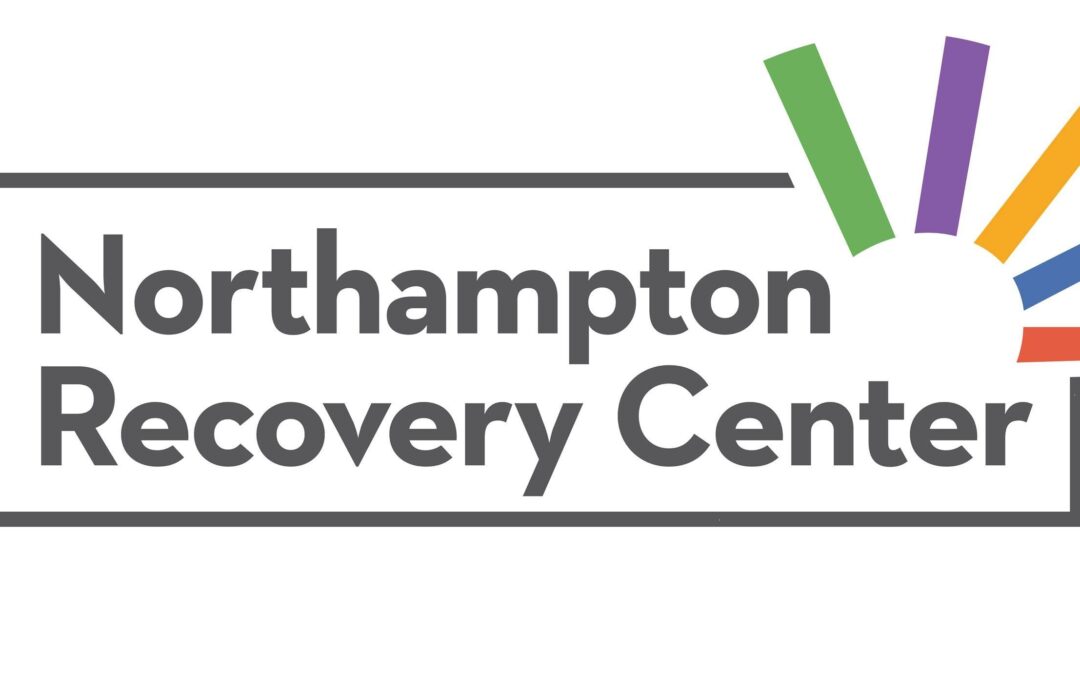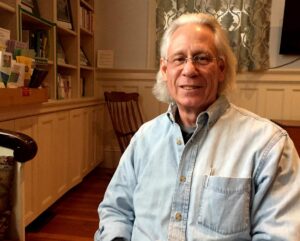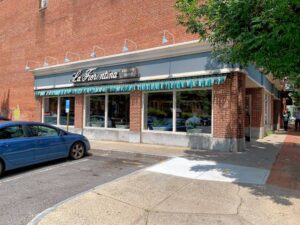FOR IMMEDIATE RELEASE
For more information: NRC Director Lynn Ferro
(413) 834-8627
lferro@wmtcinfo.org
Northampton Recovery Center opens in new, larger space to expand programming
NORTHAMPTON, MA May 17, 2021 – On April 20, the Northampton Recovery Center (NRC) ushered in an exciting new era, opening a fully-renovated location at 25 Armory Street, in what used to be the La Fiorentina bakery in the heart of the city. This Friday, their first new program begins with the offering of a six-week art group. With nearly 3000 square feet, the new center is more than double the size of the former space at 2 Gleason Plaza, where it’s been located since May of 2018. The NRC began back in 2016, with the community gathering two afternoons a week in a meeting room generously donated by the historic Edwards Church on Main Street.
In late 2019, the NRC was delighted to learn it had been awarded one of eight additional Peer Recovery Support Center (RSC) contracts from the state’s Bureau of Substance and Addiction Services (BSAS). As one of 26 BSAS-funded RSCs, the NRC is supported under the umbrella of the Western Massachusetts Training Consortium (Consortium) along with the RECOVER Project in Greenfield, that became the first BSAS-funded RSC in the state nearly 20 years ago. At $400,000 a year for three years, this funding provides for the costs associated with running a peer supported recovery center. The NRC is now fully staffed, with three full-time and two part-time employees, including a Director, Volunteer Coordinator, Outreach and Community Engagement Coordinator, Peer Coordinator and Administrative Assistant.
To meet state regulations, the NRC is required to feature a large gathering space, a quiet room, a staff room and a full kitchen. Extensive renovations to this new space were funded in part by a generous $16,000 Beveridge Family Foundation Grant, with the remainder provided by the Consortium. The fully-upgraded kitchen is well equipped with a large stove, two ovens, two sinks, an island, and ample cooking supplies, and will function in some ways as the heart of the center, according to NRC Director Lynn Ferro. “Previous experience at our center has shown us that shared meals bring people together and creates community.” Down the road, Ferro said she expects the kitchen will be the locale for teaching NRC members basic cooking and baking skills, and for a cultural culinary exchange. Four staff or members have already earned Serv-Safe food handler certification, with one acting as “Food Manager” for the Center. In addition, the NRC now has a conference room, two accessible bathrooms with baby changing tables, storage lockers and computer terminals for member use, a sitting/reception area and a large community room. A sidewalk-facing alcove will be used to mount member-created art exhibits.
From its humble beginnings, operating on seed money from the Northwestern District Attorney’s office, donations from committed community members and United Way, the NRC now has the capacity to be open 50 hours a week, meeting a dire need for community-based recovery support. Wyatt Pease, a member and volunteer says “I find it most beneficial to just connect with people. Anytime you need help, no matter what it is, someone is willing to listen or point you in the direction of someone who can help you.”
Available to anyone interested in recovery-friendly community, anticipated programming includes: trauma-informed yoga classes (with all brand-new supplies), cooking and art classes, as well as music events, movie nights, and job-readiness support. “The essential element of Recovery Centers is the people of course, but this new space holds so much promise for providing a welcoming place for all people at any stage, on any path of recovery,” said Ferro. Recently, a visitor looked around and said “what a beautiful and dignified place to seek recovery”!
The Consortium, founded in 1975, is a learning organization committed to creating conditions in which people with lived experience pursue their dreams and strengthen our communities through full participation. To learn more, visit their website at http://wmtcinfo.org/.





